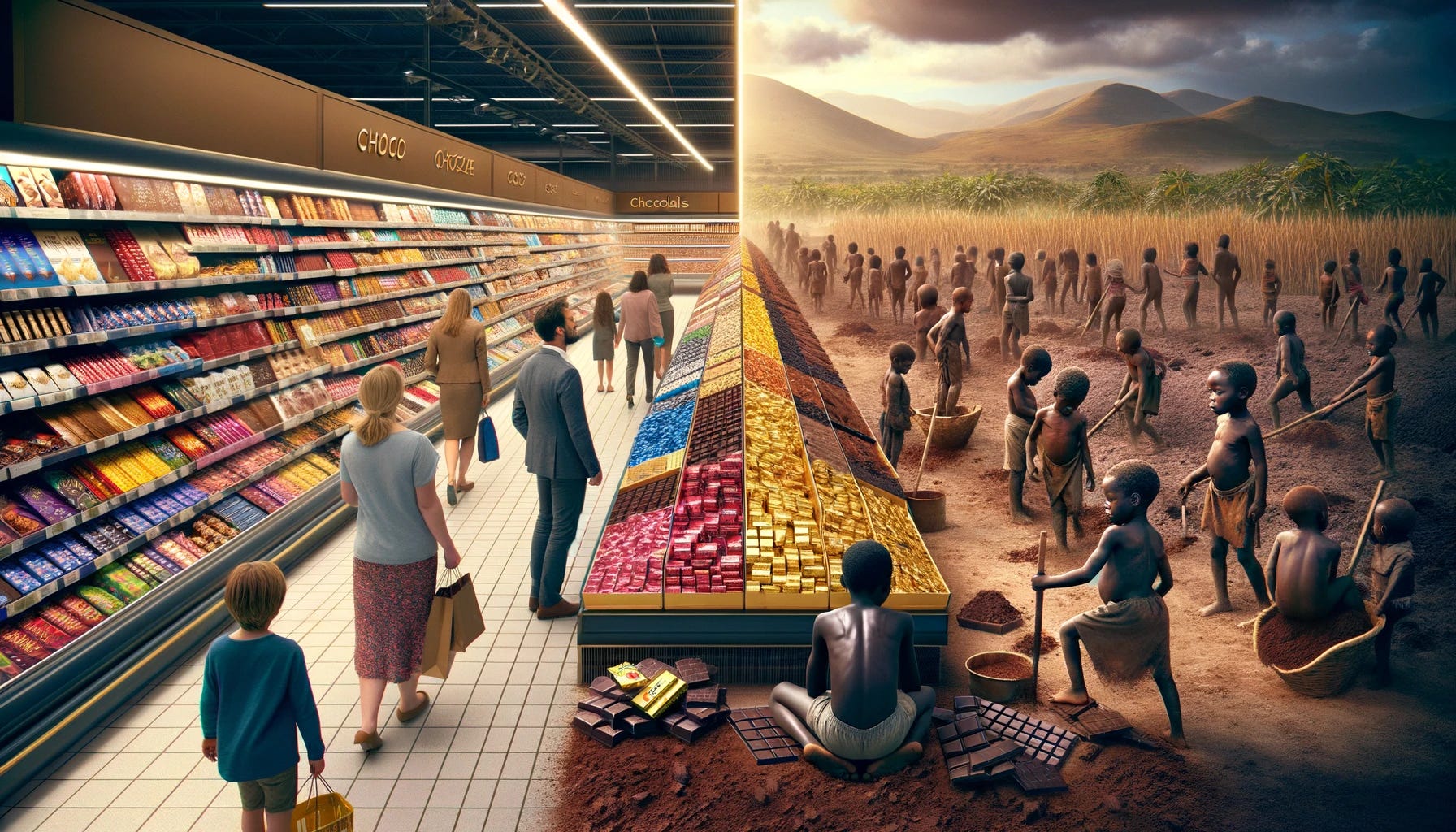The Unintended Consequences of Western Policies on Cocoa Child Labour
Western nations, driven by consumer activism and political pressure, have started implementing policies to cease cocoa imports from countries notorious for child labour. While the intention might be noble, the question remains: Do these policies work, or do they exacerbate the problem?
The Complexity of Definitions
The issue of child labour in the cocoa sector is often discussed in monolithic terms, ignoring the complexities and nuances that come with defining what constitutes 'child labour.' George Orwell, in his essay "Politics and the English Language," warns against the dangers of vague and imprecise language, stating that it can lead to "unscrupulous politicians, advertisers, religionists, and other double-talkers" taking advantage of the public (Orwell, 1946).
The International Labour Organization (ILO) defines child labour as work that is mentally, physically, socially, or morally dangerous and harmful to children (ILO, 1973). However, this definition is often interpreted differently across cultures and contexts. In some societies, children helping their parents in farming is considered a rite of passage, a form of education, and not necessarily 'labour' in the exploitative sense (Nkosi, 2017).
Moreover, the term 'child labour' is often used as a catch-all phrase that fails to distinguish between different forms of labour, such as forced labour, child work, and trafficking. This lack of clarity can lead to ineffective policies and interventions that do more harm than good. For example, blanket bans on child labour can result in children being pushed into more dangerous forms of work, such as prostitution or drug trafficking (Smith, 2015).
Question: How does the lack of a universally accepted definition of 'child labour' impact the effectiveness of policies aimed at eradicating it?
“We are confronted with a sobering reality: our well-intentioned efforts, driven by a Western lens, often overlook the cultural, social, and economic details of the very nations we aim to aid. In our pursuit of ethical cocoa production, we risk reducing a multifaceted issue to a 'single story,' inadvertently perpetuating the problems we strive to solve. It's time we acknowledge the nuanced wall-hanging of child involvement in cocoa farming — a blend of economic necessity, cultural heritage, and skill transmission. Policies, no matter how noble, must be embedded in a deep understanding of local realities and complexities, not just in the imposition of our own cultural norms. Only through this lens of sensitivity and respect for context can we design interventions that are truly effective and ethical, steering clear of the moral and practical pitfalls of cultural imposition and oversimplification. Let's challenge ourselves to look beyond the single narrative and embrace the diverse stories that form the true picture of child labour in the cocoa sector, fostering solutions that respect and respond to the complex realities of these communities." – Kwame Asamoah Kwarteng
Keep reading with a 7-day free trial
Subscribe to Cocoa Diaries Newsletter to keep reading this post and get 7 days of free access to the full post archives.


